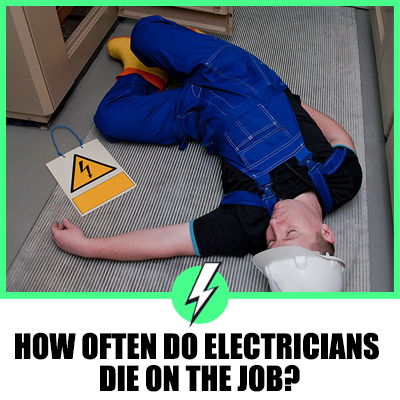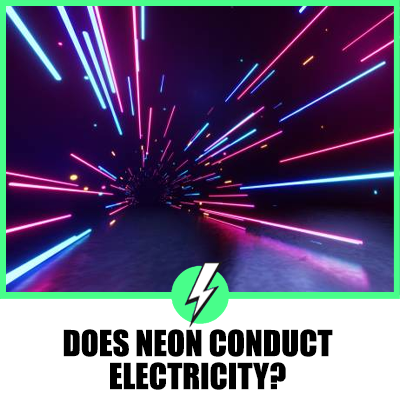How Often Do Electricians Die On The Job?
Is being an electrician a dangerous job? Do more electricians die than other tradespeople while working?
Electrical exposure causes approximately 80 deaths a year. Electricians have been killed on the job. However, this is a low number for electricians working on high voltage systems like power distribution and industrial installations, where three-phase power is the norm.

Contents
How many are electric shocks at work fatal?
Out of 1000 electric shocks, 25 are fatal. In most cases, the high number of deaths is not associated with electricity. They are from falls from structures.
Being an electrician takes a lot of know-how and considerable skills. This is why an electrician trains both in theory and practical experience for 4 years.
After 4 years, the electrician is still supervised for a further two years, at which point he can apply to become an accredited competent electrician.
Can you survive 240V?
Getting zapped by 240V in your home can be an experience that you will remember for a long time, and indeed it can be fatal.
You should consider it’s not always volts that kill. On a warm sunny day, your car can generate 10,000 volts, if you get zapped, you may let out a few expletives, but you will be fine.
Is it volts or amps that can kill you?
Actually, it’s both, but a small number of amps or current can be fatal. As low as 7mA sustained for 3 seconds can stop an adult’s heart. Anything over 2700 volts is considered to be fatal.
A tragic case
In the US, an electrician named Eddie Adams was working as an electrician in an industrial facility. He was part of a team of electricians.
One of the machines was down, and Eddie Admas investigated and diagnosed the problem in the control room, which was stacked out with high voltage gear.
He identified the correct electrical enclosure, which had 2.300 volts 3 phase power.
Eddie was experienced! He then checked the control panel with a 1000 volt amp meter?
Eddie died shortly after the event as an electrical arc and a ball of flame blew him away from the control panel. His clothes were blown off him and burnt.
It seems that this tragic accident could have happened to any electrician. Would the correct voltage meter have saved him? Or was it a case of being eager to solve a problem or just being careless?
What does it feel like to get electrocuted?
Small shocks can be unpleasant even though they are a tingling sensation. If you stand bare feet, you can feel the tingling through your feet as the electricity heads for the ground.
If you are unfortunate enough to receive a larger shock for a longer duration, you may feel like a horse has kicked you or not know anything about it.
You can receive severe burns that may need skin grafts in the right circumstances. Being electrocuted is very dangerous.
What is the most effective way to prevent electrical accidents?
There are precautions you can take to avoid electrical shocks, and they all seem pretty basic, but they are nevertheless valuable reminders of not what to do.
- Never touch an electrical item with wet hands and never stand in water with electrical items around you that could potentially fall.
- Wear rubber shoes when attempting any electrical work as a DIY project. Electrical gloves will also help prevent receiving an electric shock.
- If you get a tingling sensation from a sink unit or bathtub, switch the power off at the consumer board and call an electrician.
- Don’t use frayed cords and cords with exposed wires, don’t plug into damaged sockets.
- Don’t overload a socket with gang sockets.
- When you want to unplug, don’t yank the cable. Remove the plug correctly.
- Avoid running cables under carpet and furniture.
Finally, employ a qualified electrician to fit electrical fittings such as sockets and light fittings.
What is the biggest cause of workplace deaths?
Being a qualified electrician remains a profession with some fatalities, but the main reason for death at work is not related to being electrocuted.
The leading causes are:
- Hit by a moving object
- Fall from height
- Manual Handling
- Struck by moving vehicle
- Slips and trips
What are the dangers of being an electrician?
Like many jobs, there are always dangers associated with working, even if you sit in an office all day.
You may be surprised to read some of the potential dangers an electrician has to deal with on a day to day basis.
- The danger of a lethal electric shock is real and present.
- Fire and explosions from electrical short circuits.
- UV radiation may seem innocuous, but UV is a concern in the construction industry when working outside for prolonged periods. UV exposure can be from welding machines if working in an industrial facility.
- Danger from electrical fires from frayed wiring
- Disease from bird droppings and rat dropping when working in loft spaces.
Do electricians get shocked a lot?
There is always a clear and present danger that you should always be mindful of, and yes, electricians do get shocked from time to time, and hopefully, it’s small and not anything to worry about.
Most of you are aware of Britain’s stringent health and safety regulations, and some say they go too far and impede the job, but the truth is they are in place for a good reason: to protect the tradesman.
If you are self-employed, you should make a Health and safety plan for yourself regardless of the size of the job. It sounds overkill, but it is part of the training, and you know how to do it.
A qualified professional electrician will always be looking to mitigate the dangers they may face when working.





